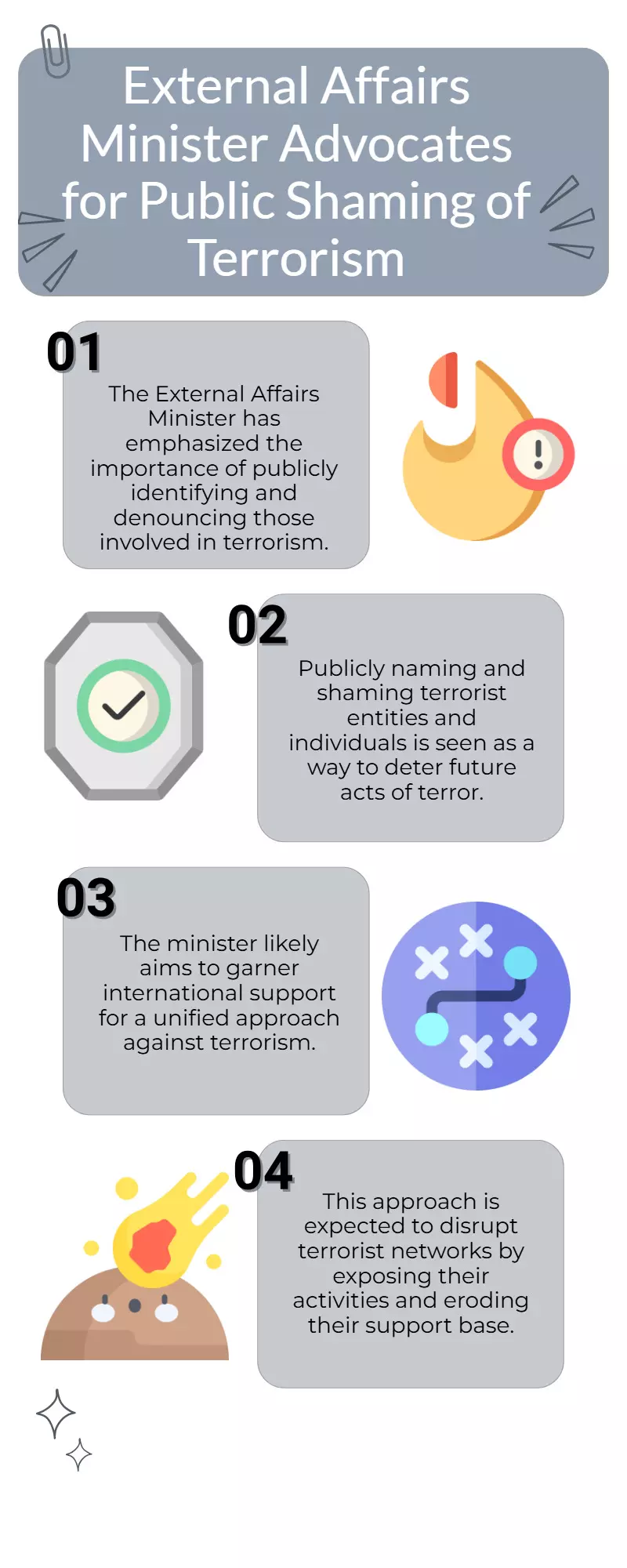"External Affairs Minister stresses need to publicly name/shame terrorism"

By : Krishna Mishra
Jaishankar Slams State-Sponsored Terrorism at UN, Highlights India's Stand Ahead of Key Quad Meet in US
Washington DC – On a significant diplomatic visit to the United States, External Affairs Minister S Jaishankar took a strong stance against terrorism, particularly state-sponsored terrorism, in a veiled reference to Pakistan. Speaking at the inauguration of the exhibition "The Human Cost of Terrorism" at the United Nations headquarters, Jaishankar stressed the urgent need to publicly call out nations that support terrorism driven by religious extremism.
"When terrorism is supported by a state against a neighbour, and fuelled by bigotry and extremism, it is imperative to call it out publicly," said Jaishankar. He underlined the devastating impact of terrorism globally, citing the 1993 and 2008 Mumbai attacks and the recent Pahalgam terror incident. "This exhibition is a tribute to victims who can no longer speak, and a stark reminder of our shared responsibility to fight terrorism in all forms," he added.
The exhibition, organized by India’s Ministry of External Affairs, aims to highlight the global toll of terrorism and efforts by the international community to combat it. Jaishankar emphasized that terrorism undermines the very values upheld by the UN — human rights, international norms, and peaceful coexistence.
He recalled the strong condemnation by the UN Security Council following the Pahalgam attack, and called for accountability, zero tolerance for terrorism, and exposing state sponsorship. "Terrorism anywhere is a threat to peace everywhere," he said firmly.
Quad Foreign Ministers Summit & Strategic Discussions
Jaishankar's visit will also see him participate in the Quad Foreign Ministers Meeting (QFMM) on July 1 in Washington DC, hosted by US Secretary of State Marco Rubio. His counterparts from Japan and Australia — Takeshi Iwaya and Penny Wong — will also be present. Ahead of the summit, Jaishankar held a phone conversation with Wong to coordinate positions.
According to the MEA, the QFMM will review regional and global developments, especially in the Indo-Pacific, and evaluate progress on key Quad initiatives before the upcoming Quad Leaders' Summit in India. Focus areas include maritime security, economic resilience, technology cooperation, and supply chain security.
The timing of the summit is sensitive, particularly for India, which has recently seen tensions with the US over the role Washington played in mediating the India-Pakistan military ceasefire in May. Further friction arises from the Trump administration’s engagement with Pakistan’s Army Chief Asim Munir and a broader perception of revived US-Pakistan ties.
The Quad alliance also faces internal strains — with Japan reportedly cancelling a 2+2 dialogue over US pressure to increase defence spending, and Australia expressing concern over the ongoing review of the AUKUS nuclear submarine deal by Washington
Despite these challenges, experts suggest the Quad meeting is a vital opportunity. “The Quad ministerial offers a path to higher status and de-hyphenation for India,” said Sameer Lalwani, a non-resident senior fellow at the Centre for Strategic and Budgetary Assessments. He added that India could strengthen its role as a net-security provider by fully implementing the Indo-Pacific Partnership for Maritime Domain Awareness.
As India navigates its position in a complex geopolitical landscape, Jaishankar’s visit and the upcoming Quad summit may help reaffirm India’s commitment to a free, open, and rules-based Indo-Pacific while sending a strong global message against terrorism.
